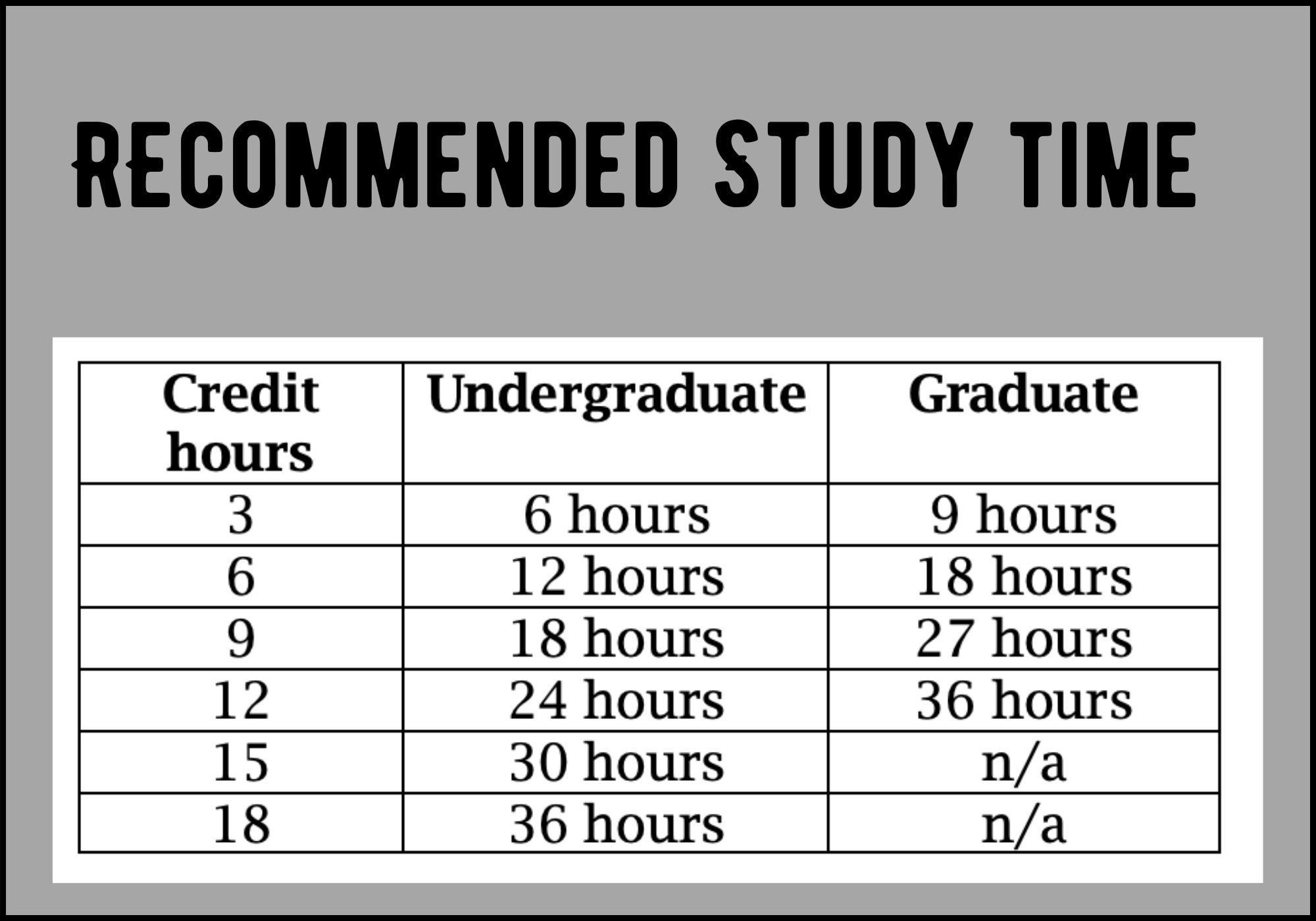How much time should I study in college?
About the author
Hi there. I am the prolific professor with 15 years of experience teaching online and in-person. I have a graduate degree. I have a passion for education. But I’ve also worked in the professional world (outside of education) too. Thanks for visiting.
Studying time in college : How much is enough?
When you’re planning your college schedule, you probably want to know how many courses to take.
And when you’re considering how many credit hours to take, you’ll probably need to know how much time you should expect to spend studying for each course.
Because if you don’t plan accordingly, you could end with too many courses and not enough study time.
You might end up making bad grades in your courses.
Or worse, you fail the course altogether.
Throughout my YEARS of experience as a college professor, I have dedicated my time to finding out what is the right amount of study time for each course.
I am going to give you that information below.
Keep in mind though that each course is different, and each student is different, so these aren’t hard rules.
They will depend on the course and the student.
But they serve as a guideline.
And I also have an amazing interactive quiz to help you figure out what type of learner you are because this could impact your study time.
Let’s get started.
What type of courses are you taking?
How much you study depends entirely on the type of courses you are taking.
Math and Science courses
When I see students who are taking science and math courses, they’ll typically say that these courses take longer to study for compared to courses like a speech class.
But if you are an amazing math and science student, these might be your easiest courses.
Other times, I find that students who are taking courses within their selected major believe that those courses are easier overall.
The reason is that these students are really interested in those courses and since most are related in some way, they already know some of the information and they don’t have to re-learn it all over again with each new course.
It’s possible that science and math courses need more study time, but courses within your major need less study time.
Of course, it’s theoretical, but something to consider.
Rigorous courses
If you take college courses from some of the most prestigious colleges, you might end up having more assignments and more challenging coursework.
This isn’t to say that other universities aren’t just as rigorous, but some professors might be more challenging than others and it would depend on your institution and your professor.
That’s a consideration.
Honors courses
If you take honors courses, that will also impact your study time.
Some colleges have honors courses that will give you the distinction of honors at graduation.
These courses will likely have a higher level of academic rigor than other courses.
Online courses
And lastly, if you take classes online, your study time may be impacted too.
For courses that I used to teach, my online classes would require more study time because students were learning more independently.
Instead of spending time in class, students would be studying on their own time instead.
So, for online classes, you might set aside more study time because you don’t have to go to class. This time might be spent studying instead.
What type of learner are you?
Something that will impact your studying time is the type of learner you are.
Let me explain.
Because if you find that your professor uses a different type of teaching style than you prefer, it might make your study time increase.
If your professor teaches the way you learn best, then your study time might be reduced.
It’s pretty well known in the educational field that there are four main types of learners. Neil Fleming’s VARK explanation is very popular.
Visual – If you’re this type of learner, you probably like to see information rather than hear it. You might prefer charts, diagrams, or videos to see the information displayed to make sense of it all.
Auditory – This type of student would prefer to hear the information during a lecture or discussion rather than reading it or seeing it.
Reading/Writing – And this type of student prefers to read the information and they might do better at taking and reviewing notes.
Kinesthetic – This type of learner wants to be more hands-on and might learn better from participating in activities like experiments to see it in action.
PRO TIP : If you are an auditory learner, you might consider purchasing an audio recorder to record your professor’s lecture (with their permission) and re-play it later to study!
How much time you study could depend on the type of learner you most identify with.
How much study time should you have for each course?
Okay, let’s talk numbers now.
When we are considering study time, you need to first understand that there are many factors that will affect your results.
And it will also depend on how we define study time.
I am not considering the time you are spending in class because you aren’t necessarily studying.
So, keep in mind that students who are taking online classes might have more preparation than students who are going to in-person classes.
Here is my best estimate from what I have seen.
I recommend students spend around 6 hours studying for a three-hour course, per week (give or take a little).
Remember, this does not include class time.
And if you are taking online classes, you should expect to spend additional time doing assignments and reviewing material, in addition to studying time.
This only includes time you will spend studying, and may not include the time it takes to work on research assignments, homework, etc.
How much time do college students really study?
See my table below to find out the estimated study time PER WEEK based on your enrolled credit hours.
For undergraduate courses, it is expected that students will spend 2 hours studying per week for each credit hour enrolled.
Graduate students will spend 3 hours studying per week for each credit hour enrolled.
I also included graduate courses too because students in graduate classes can usually expect to spend more time studying than those in undergraduate courses. But this might not always be true. It is just what I personally experienced myself.
I did not include anything above 18 credit hours for an undergraduate course because taking more than 18 hours typically requires college approval in the United States and it is not a likely course load for most students.
For graduate students, I only included 12 credit hours or less because most graduate students won’t take more than 4 graduate courses at a time. While not impossible, just not as likely.
Graduate courses are usually more demanding so most students take fewer courses.
I spent much more time on my graduate level courses than I did on my undergraduate studies.
As you can see from the table above, if you are taking 12 credit hours for an undergraduate course, you can expect to spend 24 hours studying each week, on average.
This can quickly add up with time spent in the classroom, and if you are working, you can see that going to college can quickly become a full-time job for dedicated students.
Make sure to plan your schedule based upon your spare time for studying because you don’t want to end up with bad grades because you’re too busy to study for your college courses.
Things to consider
If you are taking a class during a short semester, like a winter semester or summer semester class, you will spend considerably more time than what is mentioned above.
This is the recommended study time for a long semester, about 16 weeks long, and does not include time for an accelerated course.
So, plan accordingly for those faster paced courses.
If you are just aiming to make a ‘C’ in a class, then these rules might not apply.
Or you might be a student who never has to study and can do exceptionally well, then these rules may not apply.
Sometimes I notice students struggling more than others, and they need additional support. So, you might need more study time than I am suggesting.
Often times, older college students might have more responsibilities and distractions and might need to plan and strategize their study time.
I have spent years teaching college students, and this is based on my observations.
If you want to get the most out of your college career, I recommend spending as much time as possible studying to earn good grades.
Remember, you got this.
RECENT POSTS






